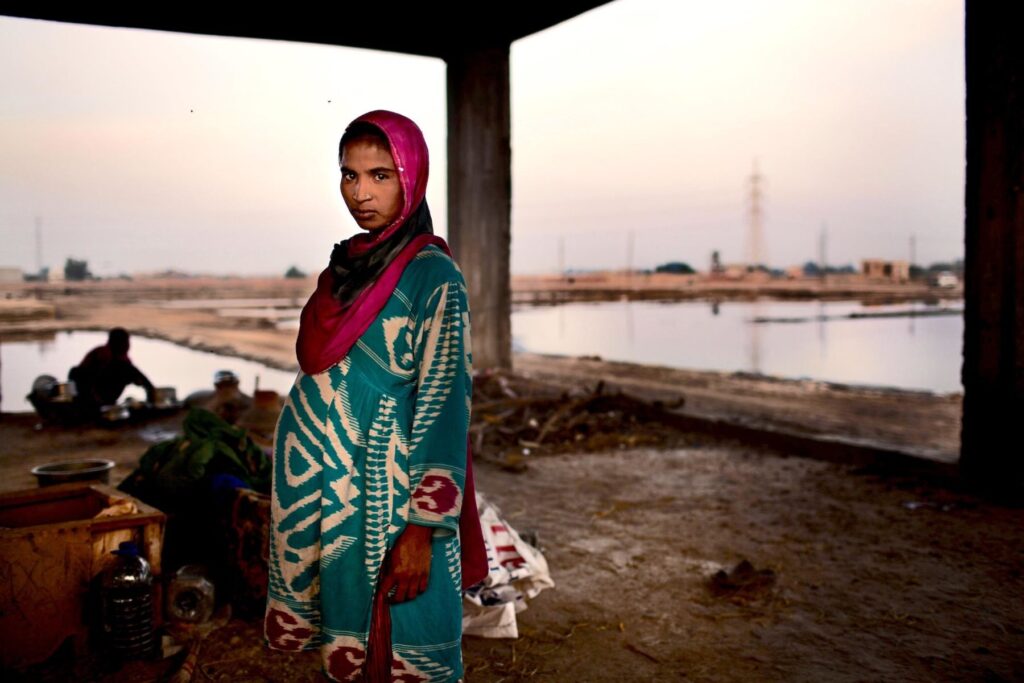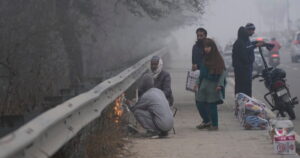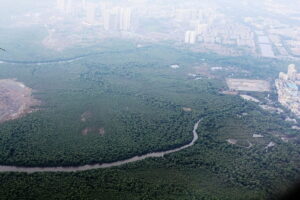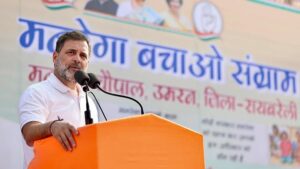Study Launched On Impact Of Heat On Pregnant Women & Babies

A pregnant woman at a flood camp in Hyderabad, a city in Pakistan’s southwestern Sindh province (Image: Alamy)
In January 2024, researchers at Aga Khan University (AKU) in Pakistan’s Sindh province, launched an ambitious four-year project to measure the impact of extreme heat on maternal and child health. Studies on the impact of the climate crisis, rising heat and the impact on pregnant women have been undertaken in other countries, but until now there has been limited research in Pakistan. This is despite the fact that human-induced climate change is making heatwaves far more likely across South Asia.
“We are linking existing data [as well as conducting new research focussing] on women who were pregnant during hot months,” says Jai Das, assistant professor at the Department of Paediatrics and Child Health at AKU. “We will compare these findings to data gathered from women who were pregnant in mild weather or the winter season,” he tells The Third Pole. Das, who is the principal investigator overseeing the project, says that in recent years “we have seen a surge of interest in the field of climate change and its impact on health in Pakistan”.
Funded by the UK-based charity Wellcome Trust, the project will gather data from 6,000 women from the districts of Tando Muhammad Khan, Tharparkar and Matiari in Sindh. The project will also cover women from low-income neighbourhoods in the city of Karachi, such as Kharadar, Dhobi Ghat and Korangi. Muhammad Khan Jamali, the project’s research manager, tells The Third Pole: “Many factors overlap when it comes to the impacts on maternal and child health, but extreme climate is certainly one of them. For example, women in congested urban areas living in small flats suffer in extreme heat – especially if they are pregnant – as they stand in front of the stove,” says Jamali. These examples highlight various social and economic constraints faced by women, including the expectation they cook during pregnancy, limited dwelling space and inadequate cooling options. All of these challenges are compounded by rising temperatures, which are set to increase 2-5˚C by 2100 in Sindh, according to climate change projections.
The project will help to determine the roles these factors play, with participating women given devices to wear and place in their homes that monitor the temperatures they are experiencing. Das says that analysing exactly how heat stress impacts the health of pregnant women and their foetuses will help “tailor solutions”.
Climate Vulnerability, High Maternal Mortality And Stillbirths
The project comes at a critical time, with Pakistan ranked as the eighth most vulnerable country to climate impacts. Water scarcity, one of the issues most exacerbated by climate change, disproportionately affects women, yet they are frequently excluded from decision-making processes. In water-scarce regions like Tharparkar in Sindh, women bear the burden of carrying an average of 90 litres over long distances, to meet their domestic needs, including cooking, drinking and washing, even during pregnancy.
Climate impacts and water scarcity are added stresses in a country with one of the highest neonatal mortality rates in the world. In 2019, a global study found that 33% of stillbirths occurred in South Asia. Pakistan had an average of 30.6 stillbirths per thousand in 2019, which was a large improvement from 39.9 in 2000, but still far above the regional average of 18.2, or the global average of 13.9.
Pregnant Women And The Threat From Heat
Nadeem Zuberi, vice-chair and professor at AKU’s Department of Obstetrics and Gynaecology, says it is “high time” there is a focus on the link between obstetric and foetal health and climate change.
Safia Manzoor, an obstetrician and gynaecologist working for the donor-funded Lyari General Hospital in one of Karachi’s low income areas, says: “We see more cases of pre-term births in hot weather.” The AKU-based study is hoping to move beyond this type of anecdotal data to figure out how exactly heat stress impacts pregnant women.
Nusrat Bano, a Lady Health Visitor (LHV), a healthcare provider offering basic nursing care and maternal and child health services in Tharparkar, says: “In 2023, [over six weeks in March and April], I saw more babies born prematurely than ever before. Mostly they were born in the eighth month; most of them did not survive.” While this period coincided with heatwaves, babies born in the eighth month don’t typically die unless there are other factors at play. The proposed research may be able to shed light on how heatwaves contribute to neonatal mortality, defined as death within the first 28 days of life, in Pakistan.
Heat stress and temperature fluctuations have a greater impact on pregnant women, explains Zuberi, because of the hormonal changes the body is going through.
Jamali says that while there is a dearth of evidence-based data in this regard, there is “enough experiential and anecdotal data to confirm” that the numbers of maternal and child health challenges have increased, especially in extreme heat periods.
“Local communities are now joining the dots and saying that children are born with low birth weight or prematurely in extreme summers,” he says, hoping that the study will allow experts to “relate specific exposures to extreme heat events at the population level to clinical and physiological outcomes in pregnancy”.
He adds: “This will provide invaluable information to devise plausible mitigation strategies and interventions for millions of mothers and babies in vulnerable populations.”
(Published under Creative Commons from The Third Pole. Read the original article here)





